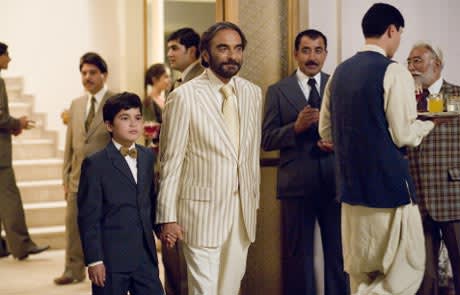It seems almost too easy to shower praise on director Marc Forsters Afghani-migrant melodrama The Kite Runner; in adapting Khaled Hosseinis beloved novel, Forster hits many emotional notes and garners as many nuanced performances. What repels such "pretentious sceptics as myself from the film is how it has been so purposefully engineered to woo crowds and win awards, often resorting to the less challenging routes to meet these aims. Nevertheless, it does meet them. The Kite Runners most sincere moments unfold early when best friends Amir and Hassan (Zekiria Ebrahami and Ahmad Khan Mahmoodzada, respectively) navigate through their childhood in Kabul with an innocence that is soon wrenched from them by the festering politicisation of their class differences Hassan is Amirs servant. Amirs own principled father (a masterful Homayoun Ershadi) reserves his admiration for the servant Hassans strong-willed loyalty, a preference that incites the films central betrayal. The Soviet invasion of Afghanistan forces Amir and his father to seek refuge in the States, where the child grows into a novelist detached from his turbulent homeland and his childhood friend. It is the hurried third-act, where the adult Amir (United 93s Khalid Adballa) goes back to Taliban territory on a redemptive rescue mission that enters feel-good action movie territory and foregrounds the films banal treatment of current issues. With a story set at the intersection of the most prominent political and ideological war now taking place between America and the Middle East the film blunts the conflict down to primary preconceptions. The treatment of the Taliban goes little further than offering a recurrent, generic, irrational and vile villain as its embodiment. Meanwhile, the film chooses to withhold any sort of comment on U.S. involvement. The feel-good Kite Runner fails to question any of the popular mentalities it proudly bestows on marginalised characters. Of course, thats exactly why this kind of movie would win awards.
(Paramount Vantage)The Kite Runner
Marc Forster

BY Radheyan SimonpillaiPublished Dec 14, 2007